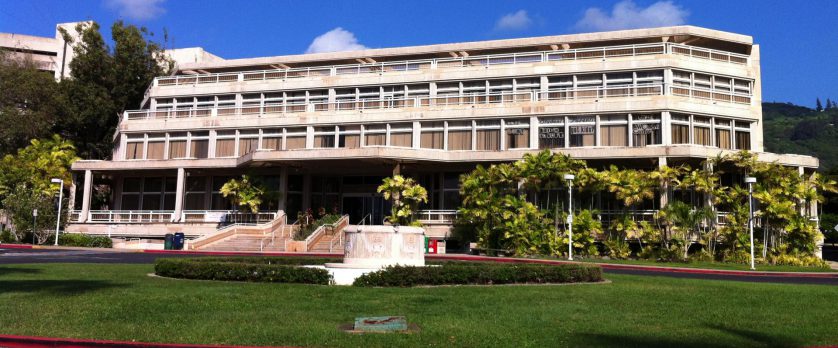So you want to study psychology in Hawaii. Colleges and universities across the United States offer varying psychology programs, so why travel to Hawaii to focus on the subject if you don’t live there already?
We deep dive into what to expect when studying psychology in the state, how the job market looks at the focus, licensing information for Hawaii, and a few more need-to-know aspects.
Find out if attending a psychology school in Hawaii is the right decision for you and your future career.
Why Choose to Study Psychology in Hawaii?
Studying psychology in Hawaii gives you access to a beautiful environment to immerse yourself in. With a lower (if not equal to) national average for tuition prices across the board, you can enjoy the beauty and knowledge this state has to offer.
Keep in mind that if you’re applying from out of state, prominent-name universities in Hawaii may come at a higher cost. For example, the University of Hawaii–Manoa (Honolulu) charges in-state tuition of $6,093 per term for residents and $17,109 for non-residents.
Despite this, students still flock to the islands. Schools in Hawaii tend to be more diverse than other schools, with a wide range of ethnicities, races, and cultures, making them attractive to anyone wishing to study psychology.
Furthermore, Hawaii has over 25 schools–both two and four-year programs–to choose from concerning your psychology degree. Out of all of the schools in the state, Hawaii awarded 247 psychology degrees in 2018, meaning it’s a sought-after degree and that schools might prioritize students’ education through smaller class sizes and attentive professors.
Sponsored School(s)
Job Prospects in Hawaii for Psychology Professionals
Students can graduate with peace of mind because of Hawaii’s low unemployment rate. The decreased percentage means that students out of college with their psychology degrees are more likely to find a job than those in states with higher rates.
In addition, even though the demand for psychologists within the state is not as high as the national average, the market is still expected to increase by 13% within the next five years. More specifically, Honolulu–the state’s capital–is the most densely populated and in-demand of psychology professionals.
Students with psychology degrees are also more likely to find a job because of the lack of competition. However, students with only a bachelor’s degree cannot legally practice clinical psychology without first earning a master’s degree and doctorate in the subject. Fortunately, Hawaii has many schools that offer these advanced degrees.
The average salary for psychologists in the state ranges concerning specialty. Below, we’ve included some standard annual salaries for different psychology professions in Hawaii:
- Clinical Counseling and School Psychologists: $110,780
- Psychology Teachers: $74,820
- Psychologist: $98,950
- Psychiatric Technician: $44,520
- Psychiatric Aides: $33,870
Compared to the national averages for these psychology-related professions, Hawaii ranks above salary expectations, most likely due to the lack of demand concerning the national need.
Hawaii Psychology Licensing and Certification Requirements
When applying for your psychologist license or certification, you must apply for an examination, which you cannot do until first obtaining your doctorate in the field.
During that time, students must complete at least 1,900 internship hours under the supervision of a licensed psychologist, a psychologist with an ABPP certification, or an individual with a Ph.D. in psychology from an accredited university.
The internship supervisor must complete a pre-doctoral internship verification, which the applicant must submit along with their licensing application.
Then, after graduating from your doctoral program, you must complete at least one year of postdoctoral training under the same supervision as necessary in the pre-doctoral internship. You will also need a postdoctoral verification form signed and submitted with the license application.
From there, you can take the Examination for Professional Practice in Psychology (EPPP) to get your official license.
To keep up with your license, you must complete 18-hours of continuing education within the two years between renewal. In addition, the American Psychology Association (APA) and the Hawaii Psychology Association (HPA) must approve of the continuing education courses.
Psychology Certification
Getting a psychology certification is not the same as a license. You cannot practice psychology without a license, but a certificate is good for specializing in a field or acquiring a job in a specific psychology sector. Certifications require additional education within the desired domain and examination. Some popular certifications include:
Frequently Asked Questions
How long does it take to become a psychologist in Hawaii?
Since becoming a licensed psychologist requires advanced educational degrees and prior experience, it will take roughly 10-years to obtain an official, practicing psychologist status in Hawaii.
What are the top schools for psychology in Hawaii?
Sometimes the top school for each individual varies based on the field they want to study and the overall campus atmosphere. Below, you’ll find the best combination of both desirable aspects concerning psychology schools.
Where in Hawaii do You Want to Study?
New Hope Christian College-Honolulu
290 Sand Island Access Rd
Hawaii Psychology Resources
If you’re looking for additional information to aid you on your journey, use these helpful links to educational resources for practicing psychology in Hawaii from reputable organizations and websites.
Association of State and Provincial Psychology Boards – The ASPPB is committed to implementing consistent standards to ensure individuals can practice psychology and deliver high-quality care.
Department of Commerce and Consumer Affairs: Professional and Vocational Licensing Division – The Professional and Vocational Licensing Division of the Department of Commerce and Consumer Affairs is responsible for licensure and certification information in Hawaii.
Hawaii Psychological Association – The HPA is responsible for upholding and applying the contributions of Psychology and all related branches in Hawaii. It is also the leading resource for all of your psychological health, research and policy needs within the state.








 Degrees Offered
Degrees Offered





